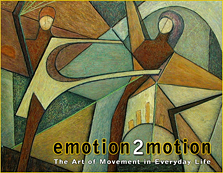Dancing with others makes you keenly aware of how you hold your body in space, and how your partner’s body movements mesh with yours in terms of weight, time, space and flow. The most wonderful dance moments happen when you can feel the full presence of the other person, connected through touch, through the literal weightiness of body mass and muscle, through resistance and centrifugal force, through the aliveness of their being.
Parenting requires shared weight too, the weight of responsibility, whether it’s running errands, covering for the other parent while they attend to something else imperative, the share of an agreement or an exchange. The most wonderful parenting moments occur when you can feel at ease in the shared aspect of the role, when you know the other parent can be relied upon, counted on to bear an equitable share of the weight of the task.
Too often, in divorce, the process of separation leads to an imbalance in shared parenting. Most of my clients know that I have a ‘bias’ of sorts, in believing that kids will do best when they can keep both of their parents, rather than feeling they’ve lost someone in the fracturing of the family. Too often, one parent pulls the weight, while the other erratically picks up and lets go of responsibility. This can happen for a myriad of reasons, not all of them noxious. Sometimes one parent is the ‘gatekeeper’ of the knowledge of how to parent, of what the kids’ needs and preferences are. This knowledge is hard to share. Sometimes sharing it feels like losing something precious, a privileged wisdom or position.
Parents have different relationships with their children. Sometimes jobs and distances affect how someone can share the weight. Other times, the temperaments of children determine who is best able to attend to a given situation or need, and that can lead to being out of balance in the shared responsibility. Parents who are able to successfully navigate sharing find ways to do so that are not necessarily equal in kind, but rather are equitable in spirit and competencies, furthering the strength and development of relationships.
When you feel like you’re bearing more than your share of what you had hoped would be a joint effort and shared vision, it’s time for a conversation, even during or post-divorce. A collaborative coach or mediator can help facilitate a dialogue, and help you balance the weight more equitably.

